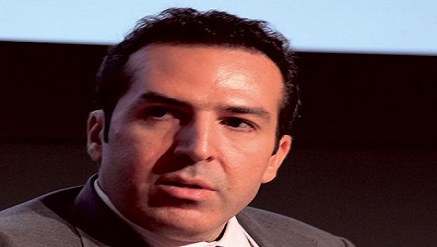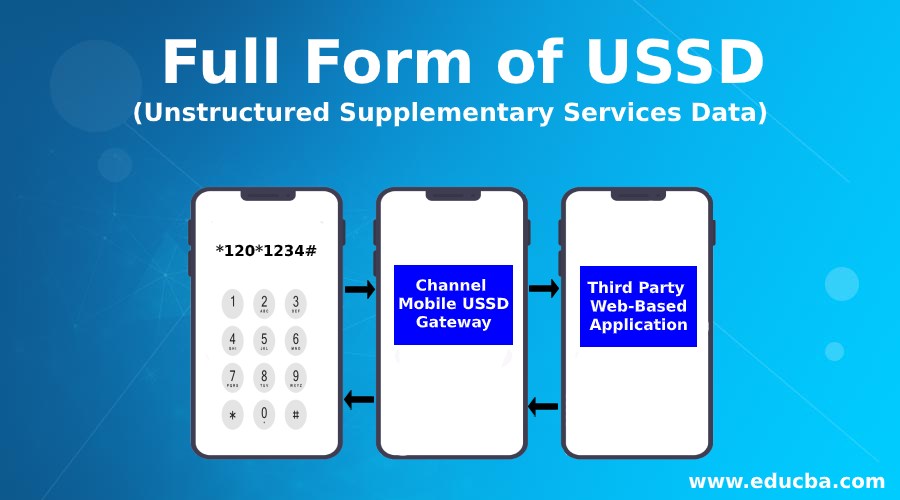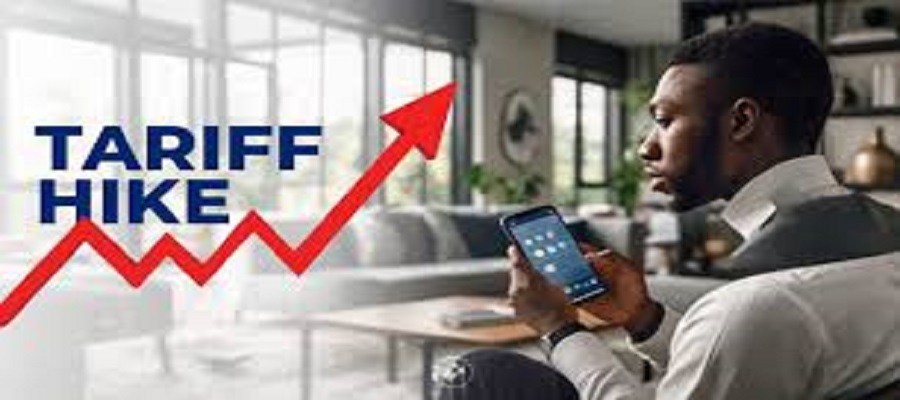Telecom
IHS Urges Africa to Replicate Telecoms Revolution on Renewable Energy

Africa must deliver a renewable power revolution, as happened with telecommunications, to reach its ambitious targets, according to a new report commissioned by IHS Towers, the largest mobile telecommunications infrastructure provider in Africa, Europe and the Middle East.
“Power Up, Delivering Renewable Energy in Africa,” written by the Economist Intelligence Unit and published today to coincide with the World Economic Forum on Africa, highlights examples of successful renewable energy projects across the continent and identifies barriers and promoters of success within the sector.
The key findings include:
Renewables must play a greater role in Africa’s energy mix.
The case for building renewable energy infrastructure in Sub-Saharan Africa is stronger than ever and positive experiences in lead markets such as South Africa and Kenya highlight successful strategies and best practices. However, Africa requires up to US$90 billion of investment annually to meet its current energy shortfall.
The African renewables sector resembles the mobile phone sector of a decade ago. It has the capacity to leapfrog heavy infrastructure with a larger-than-assumed market, the emergence of smart business models and improved technology.
However, long-term renewable procurement programmes are needed to build the greenfield infrastructure necessary.
There has been huge growth in technology sales and financing innovation. The market for pico-solar units has grown from almost zero in 2009, to 4.5 million in 2014 and, in January 2016, Africa saw its first solar bonds, a securitisation financial product for small scale off-grid solar projects.
Ambitious energy targets are not enough. Investors are carefully assessing the technical capacity of host governments, the country’s infrastructure track record and the connection between renewable targets and economic needs.
The report finds that a 680% increase in net renewables capacity deployment is needed if Africa is to achieve the African Renewable Energy Initiative’s ambitious goal of 300 GW of renewable capacity by 2030, agreed by the Africa Union and member governments at the recent Paris climate talks.
Innovative tools and projects are helping to bring green energy to people beyond the traditional grid.
However, there is no substitute for larger infrastructure programmes such as wind and solar farms.
Speaking on the report, Issam Darwish, executive vice chairman and IHS Towers Group CEO, said, “This report reaffirms that Sub-Saharan Africa has the raw ingredients for a vibrant renewables energy market: resource abundance, falling costs of wind turbines and solar panels, smart innovations in end-user equipment and political commitment – by governments and international donors alike.
The ‘Power Up’ report also recognises the scale of the opportunity facing the continent – from geothermal power in Kenya and Ethiopia to solar power in Zambia and Uganda – and will help governments, businesses and investors to understand how to support renewable energy projects and provide the best conditions for success.
’At IHS we have seen the energy and operational efficiency benefits that come from investing in renewable power solutions, having invested US$500 million in new green energy power systems across our portfolio. Over the next few years, we plan to become almost diesel neutral across our Zambian portfolio and we’re assessing solar farm opportunities in Rwanda that could potentially supply power to the national grid in the first ‘energy swap’ model to be used in Africa.
‘We hope this report helps other companies, governments and investors to support the accelerated development of the renewable energy infrastructure required to meet the needs of a prospering Africa,\’ he said.
The report, which includes over 28 expert interviews, fieldwork and reportage from Nigeria, Uganda and Zambia, suggests four measures to attract increased investment in renewables projects and ensure their success:
1. Governments should target subsidies that protect the poor while not deterring investors with artificially low tariffs.
2. More transparent and harmonised regulations are required to support private sector decision-making.
3. Improved border customs efficiency will help to reduce costs and improve construction and maintenance times by making it easier to move technology and equipment in and out of landlocked countries.
4. Attention should be focused on government-led comprehensive renewable procurement programmes, rather than relying on one-off investments.
The Economist Intelligence Unit is the world leader in global business intelligence.
It is the business-to-business arm of The Economist Group, which publishes The Economist newspaper. The Economist Intelligence Unit helps executives make better decisions by providing timely, reliable and impartial analysis on worldwide market trends and business strategies.
IHS is the largest mobile telecommunications infrastructure provider in Africa, Europe and the Middle East. Founded in 2001, IHS provides services across the full tower value chain – colocation on owned towers, deployment and managed services.
Today IHS owns over 23,300 towers in Nigeria, Cameroon, Côte d’Ivoire, Zambia and Rwanda.
Telecom
NATCOMS, Subscribers Body to Sue NCC over Call, Data’s 50 Percent Tariff Hike
National Association of Telecommunications Subscribers (NATCOMS) has said it would file a lawsuit against the federal government’s decision to allow telecom operators to increase tariffs by 50 per cent.

Deolu Ogunbanjo, president, NATCOMS
Deolu Ogunbanjo, president, NATCOMS, in an interview in Lagos, said the Nigerian Communications Commission did not carry subscribers along.
Ogunbanjo said that NATCOMS understood the dilemma faced by the telecommunications industry and had suggested a five per cent to ten per cent marginal increase in tariff.
He said that the approval by the federal government for telecom operators to hike tariffs but capped at 50 per cent maximal increment was unacceptable.
According to Ogunbanjo, earlier, economic experts had x-rayed the telecoms sector and said that it was in intensive care, meaning that it needed to be attended to.
“The industry operators can opt for an initial public offer for Nigerians to buy shares in their companies as a way of raising funds. However, a situation where a whole 50 per cent is granted for a tariff hike is not cheap. It is a no from us subscribers.
“I mean, for what we are already going through, no for us, we will challenge this in court,’’ Ogunbanjo stated.
On Monday, the NCC, the industry’s regulatory body, released a statement saying it had acceded to the requests of operators to hike tariffs.
This was announced in a statement.
The NCC said it had approved the 50 per cent tariff adjustments in response to prevailing operational costs. It said this was less than the 100 per cent demanded by some telecom operators.
It said its decision was pursuant to its power under Section 108 of the Nigerian Communications Act, 2003, to regulate and approve tariff rates and charges by telecommunications operators.
The NCC added that, while recognising the concerns of the public, the decision was made after extensive consultations with key stakeholders across the public and private sectors.
“The NCC has prioritised striking a balance between protecting telecoms consumers and ensuring the sustainability of the industry, including the thousands of indigenous vendors and suppliers who form a critical part of the telecommunications ecosystem.
“The NCC recognises the financial pressures faced by Nigerian households and businesses and remains deeply empathetic to the impact of tariff adjustments. To this end, the commission has mandated that operators implement these adjustments transparently and in a manner that is fair to consumers,” the NCC explained.
It added that these adjustments would support the ability of operators to continue investing in infrastructure and innovation, ultimately benefiting consumers through improved services and connectivity.
The NCC also mentioned that consumers would benefit from better network quality, enhanced customer service, and greater coverage within the country.
Telecom
CBN, NCC Provide New Framework for Resolution of USSD Dispute between Banks and Telcos

Central Bank of Nigeria (CBN) and the Nigerian Communications Commission (NCC) have provided a new framework to resolve the protected Unstructured Supplementary Service Data (USSD) debt issue between Deposit Money Banks (DMBs) and Mobile Network Operators (MNOs).

USSD, sometimes referred to as “quick codes” is provided by MNO and are used for banking services.
MNOs and banks have been at loggerheads over debts.
USSD debt issue emerged from allegations that some banks were deducting the USSD fees from customers but failing to remit the funds to telecom operators.
Instead, the banks reportedly used these funds to address other financial obligations.
Despite significant efforts, the dispute has remained unresolved.
In their second intervention, the CBN and NCC issued a joint circular signed by Oladimeji Yisa Taiwo, acting director, Payments System Management Department, and Chizua White, head of Legal & Regulatory Services of CBN and NCC respectively.
In the circular, the regulators mandated the banks to settle 85 percent of all outstanding invoices issued after the implementation of Application Programming Interfaces (APIs) by December 31, 2024.
Furthermore, all future invoices must also be settled at 85 percent within one month of issuance.
Banks are required to pay 60 percent of invoices predating the API implementation as full and final settlement.
Payment plans, whether lump sum or installments, must be finalized between DMBs and MNOs by January 2, 2025.
Where installment payments are proposed, such plans must consist of equal monthly payments, with all payments completed by July 2, 2025.
Transition to End-User Billing (EUB)
Compliance with the aforementioned directives is a prerequisite for transitioning to an End-User Billing (EUB) system.
The NCC will activate the necessary regulatory processes to enable this transition and will provide public guidance on the matter.
Part of the guidance incudes the following.
To ensure fairness in billing, MNOs must adopt a rule that any USSD session lasting less than 10 seconds will not be billable.
Migration for prepaid billing DMBs
Banks currently operating under prepaid billing may transition to EUB after fulfilling all regulatory requirements.
Discontinuation of Litigation Both DMBs and MNOs have been instructed to discontinue any ongoing legal proceedings related to the USSD debt dispute,” it read in part.
The circular underscored that non-compliance with these directives would attract regulatory sanctions from both the CBN and NCC.
The USSD debt issue emerged from allegations that some banks were deducting the N6.98 USSD fees from customers but failing to remit the funds to telecom operators.
Instead, the banks reportedly used these funds to address other financial obligations.
As a result, telecom companies, under the directive of the NCC, threatened to disconnect nine banks from USSD services by January 27, 2025, if they failed to settle outstanding debts.
The affected banks include Fidelity Bank, First City Monument Bank (FCMB), Jaiz Bank, Polaris Bank, Sterling Bank, United Bank for Africa (UBA), Unity Bank, Wema Bank, and Zenith Bank. Collectively, their debts are estimated to exceed N160 billion.
The NCC issued a notice emphasising its commitment to consumer protection and warned customers of the potential loss of USSD services with these banks if the debts remain unpaid. “As part of its commitment to consumer protection, the Commission wants to inform consumers that they may lose access to the USSD services of the affected banks from January 27, 2025,” the NCC stated.
Previously, telecom operators threatened to suspend the USSD services of 18 banks due to unpaid bills totaling over N200 billion.
However, the recent directives signal a renewed effort to resolve the impasse and ensure that consumers continue to enjoy seamless USSD services.
The CBN and NCC aim to resolve the USSD debt issue through the outlined measures, ensuring a balance between the interests of telecom operators, banks, and consumers. A key element of this resolution is the shift to an End-User Billing system, which will streamline the payment process and minimize disputes.
In addition to the financial directives, the circular encouraged collaboration between banks and telecom operators to implement these measures effectively.
It also directed both parties to ensure prompt and transparent communication to avoid further misunderstandings.
For customers, the resolution of this issue is critical to maintaining uninterrupted access to USSD services, which are essential for mobile banking transactions.
The adoption of the “10-Second Rule” is expected to reduce disputes over unfair billing and enhance consumer trust.
As part of the regulatory process, the NCC and CBN will provide public guidance on the transition to the new billing system.
This step is expected to foster a smoother shift to End-User Billing while ensuring that consumers are adequately informed.
The ongoing efforts by the CBN and NCC to address the USSD debt dispute reflect a commitment to safeguarding consumer interests and maintaining stability in Nigeria’s financial and telecommunications sectors.
By enforcing these directives, the regulators aim to resolve the debt crisis, ensure fair practices, and support the continued growth of digital financial services in the country.
While challenges remain, the outlined resolutions provide a clear path forward, emphasising accountability, transparency, and collaboration among all stakeholders.
The next steps will determine the success of this initiative and its impact on the broader financial ecosystem.
Telecom
Telecom Tariffs Set to Rise by 50 Percent as NCC Approves Adjustments

Nigerian Communications Commission (NCC) has announced that it will approve tariff adjustment requests by network operators, in response to current market conditions.

The adjustments, capped at a maximum of 50% of current tariffs, are lower than the over 100% requested by some operators.
These changes will remain within the tariff bands stipulated in the 2013 NCC Cost Study and will be reviewed on a case-by-case basis, adhering to the NCC Guidance on Tariff Simplification, 2024.
The adjustments aim to address the gap between operational costs and current tariffs, ensuring service delivery is not compromised.
They will support operators in investing in infrastructure and innovation, benefiting consumers through improved services and connectivity.
The decision was made after extensive consultations with stakeholders, balancing consumer protection and industry sustainability.
The NCC has mandated transparent implementation and public education on the new rates, with a focus on measurable service improvements.
The NCC remains dedicated to fostering a resilient, innovative, and inclusive telecommunications sector, supporting indigenous vendors and suppliers, and promoting Nigeria’s digital economy.
The Commission will continue to engage with stakeholders to create a telecommunications environment that works for everyone.

 News2 days ago
News2 days agoSERAP Petitions Trump, Urges Recovery of Stolen Nigerian Assets, Barring Corrupt Officials from US

 News2 days ago
News2 days agoNigeria’s Electricity Exports Hit $112m amid Persistent Power Outage

 Telecom2 days ago
Telecom2 days agoSubscribers Reject Tariff Hike, Say FG Cannot Speak for Them

 E-Financial2 days ago
E-Financial2 days agoOver 562m People Own Cryptocurrency Globally

 Telecom2 days ago
Telecom2 days agoMTNN Raises N42.20Bn through Commercial Paper

 General News2 days ago
General News2 days agoNIS Announces Maintenance on Passport Portal

 General News2 days ago
General News2 days agoNITDA, NFIU Collaborate on AML/CFT Data Management System Upgrade

 Telecom23 hours ago
Telecom23 hours agoTelecom Tariffs Set to Rise by 50 Percent as NCC Approves Adjustments















